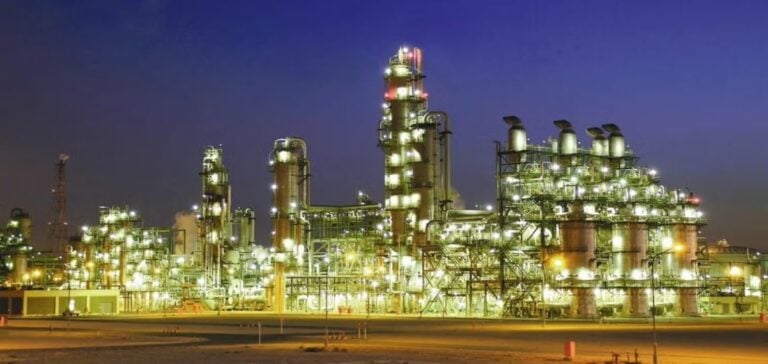The groundbreaking ceremony for an ambitious petrochemical project was held in Fujian Province, China, marking a strategic collaboration between Aramco, Sinopec, and Fujian Petrochemical Company Limited (FPCL). This integrated refining and petrochemical complex is set to enhance production capacity and support the sector’s growth objectives.
The site, expected to be fully operational by the end of 2030, will include a refining unit with a capacity of 16 million tons per year, equivalent to 320,000 barrels per day. It will also feature a 1.5-million-ton-per-year ethylene unit, a two-million-ton paraxylene capacity, downstream derivatives, and a 300,000-ton crude oil terminal to ensure a steady supply of raw materials.
Strategic Partnerships and Role Distribution
FPCL, a 50:50 joint venture between Sinopec and Fujian Petrochemical Industrial Group, holds a 50% stake in the project. Aramco and Sinopec equally share the remaining 50%. This partnership reflects a vertical integration strategy, strengthening resource supply and utilization in the region.
Mohammed Y. Al Qahtani, Aramco Downstream President, emphasized the importance of this collaboration, stating: “Today, we strengthen our downstream investment portfolio in China while reinforcing our role as a reliable and long-term partner. This project also aligns with our crude-to-chemicals strategy to meet growing global demand for petrochemicals.”
A Project Aligned with China’s Economic Priorities
For China, this complex supports its “dual circulation” strategy, which aims to boost domestic consumption while enhancing commercial partnerships. Sinopec Chairman Ma Yongsheng highlighted the benefits of this collaboration: “Aramco provides a reliable supply of raw materials, contributing to the development of the Gulei petrochemical site and bolstering our strategic China-Saudi partnership.”
This project also addresses the growing demand for chemicals in international markets while contributing to a more stable and competitive energy supply chain.
This development represents a new milestone in the economic relationship between China and Saudi Arabia, solidifying their long-term energy partnership and fostering mutual industrial expansion.






















